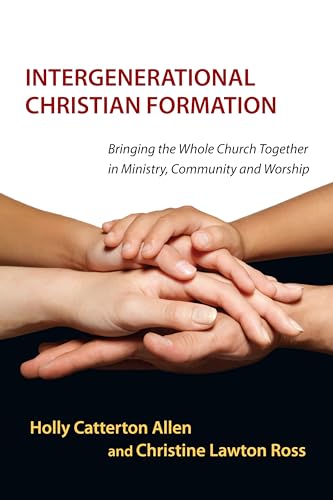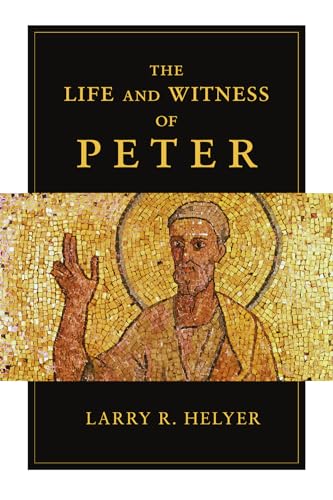Intergenerational Christian Formation: Bringing the Whole Church Together in Ministry, Community and Worship
Written by Holly Catterton Allen and Christine Lawton Ross Reviewed By Brian C. DennertAlthough most churches are “multi-generational” in that they have members of various ages, many churches are not “intergenerational” since congregants rarely interact with people outside of their age or life-stage. Holly Allen of John Brown University and Christine Ross of Concordia University-Irvine seek to counter this reality by offering abundant reasons for churches to prioritize intergenerational interactions and by providing numerous ideas for cultivating an ethos of intergenerationality. This text utilizes their research on aspects related to intergenerationality as well as their experiences in intergenerational congregations.
The book consists of four parts. Part 1 (“Generational Realities”) examines factors causing age-segregation to become common in churches. Allen and Ross note the general benefits of intergenerationality and the unique benefits intergenerationality provides for people at various ages and stages of life. Parts 2 and 3 build a multi-disciplinary case for intergenerationality in churches. Part 2 (“Biblical, Theological, and Theoretical Support”) first shows that Scripture calls for and reflects intergenerational communities and then demonstrates how such a call coheres with ideas found in developmental theory, social learning theory, ecological system theory, and situative-sociocultural theory. The focus of Part 3 (“Support from the Social Sciences”) is how research in the social sciences corroborates the need for and benefits of intergenerational communities. The work moves from theory to practice in Part 4 (“Intergenerational Christian Formation Practices”), discussing how to build an intergenerational church culture through its worship, education classes, service projects, and small groups. This section also features chapters specifically devoted to intergenerationality in multicultural churches and megachurches. More practical help appears in three appendices that contain forty ideas for intergenerational activity, a list of resources on intergenerationality, and a compilation of biblical texts supporting this outlook.
This book serves as a helpful primer on the subject of intergenerational community and will prove to be a useful resource for church leaders. Allen and Ross demonstrate awareness of previous works addressing the topic and relevant research from a variety of fields, presenting helpful summaries of these studies. The work is also filled with anecdotal insights from the authors’ experiences in intergenerational community that display tangible ways a church can practice integrating the generations. Overall, the authors present a compelling case for the value intergenerationality possesses for Christians of all ages. While sounding a strong call for churches to be more intentional in facilitating intergenerational interaction, the authors do so realistically rather than idealistically. For example, they recognize that developing an ethos of intergenerationality takes time and requires the support of a church’s leaders. In addition, they do not offer a “one size fits all” approach, stating that intergenerational activities will vary between churches in light of the unique elements of each ministry setting. Moreover, Allen and Ross do not call for abolishing all aspects of church life structured according to age and stage. They acknowledge a place for such activities. At the same time, they note how various structures often segregated by age and stage can be intergenerational. The discussion of intergenerational small groups is “the most comprehensive recommendation” the authors make (p. 239).
Although the work is laudable, there are a number of ways that the authors could strengthen their discussion. The inclusion of biblical and theological arguments alongside ideas from various other disciplines in one section (Part 2) and the allocation of a whole section to the findings of social sciences (Part 3) may seem to marginalize the primacy of Scripture in the practice of ministry and overemphasize the findings of other disciplines. A longer discussion of the biblical and theological rationale for intergenerationality and/or its placement as a separate section may prevent criticisms that the authors depend more on contemporary research than scriptural methods. In addition, some readers may get bogged down by the extensive use of the social sciences and various theories, particularly if they are unfamiliar with these areas or find a theory difficult to understand. An issue I do not feel is adequately addressed is how to engage in intergenerational evangelism and outreach, and it may be wise for the authors to discuss in more detail the challenges or opportunities intergenerationality presents as the church tries to reach a culture that is increasingly divided by age and stage. Finally, it could be interesting to consider the issue of intergenerationality in Christians of other cultures and times.
These criticisms should not detract from the achievement of Allen and Ross in producing a book that has value for the classroom and the church. In line with the authors’ contention that intergenerationality is a culture, not a program, and that it will emerge only through the support of church leaders, this book should be read not only by those who specialize in ministries to various groups (e.g., children, youth, singles, families, seniors, etc.) but also by pastors, lay leaders, and future leaders such as seminary students and interns.
Brian C. Dennert
Brian C. Dennert
Faith Church
Dyer, Indiana, USA
Other Articles in this Issue
Carl Ferdinand Howard Henry (1913–2003) was an American theologian in the conservative evangelical tradition...
Will everyone one day be saved? Is hell only temporary, if it exists at all? If the answer is yes to either of these questions, the historic Christian commitment to the conversion of the world to Christ would appear to be somewhat silly...
People rightly note the way Christians in English-speaking Western culture have moved in a generation from being ‘moral majority’ to ‘immoral minority’...
In recent years a number of stances have arisen that have set themselves over against traditional evangelicalism and traditional Reformed thought, not a few of them arguing, in part, on the basis of a particular understanding of the kingdom...
Abounding in the Work of the Lord (1 Cor 15:58): Everything We Do as Christians or Specific Gospel Work?
by Peter OrrOne of the deepest impacts of the Reformation on Western Culture arose from the robust rearticulation of the biblical doctrines of creation and vocation...







